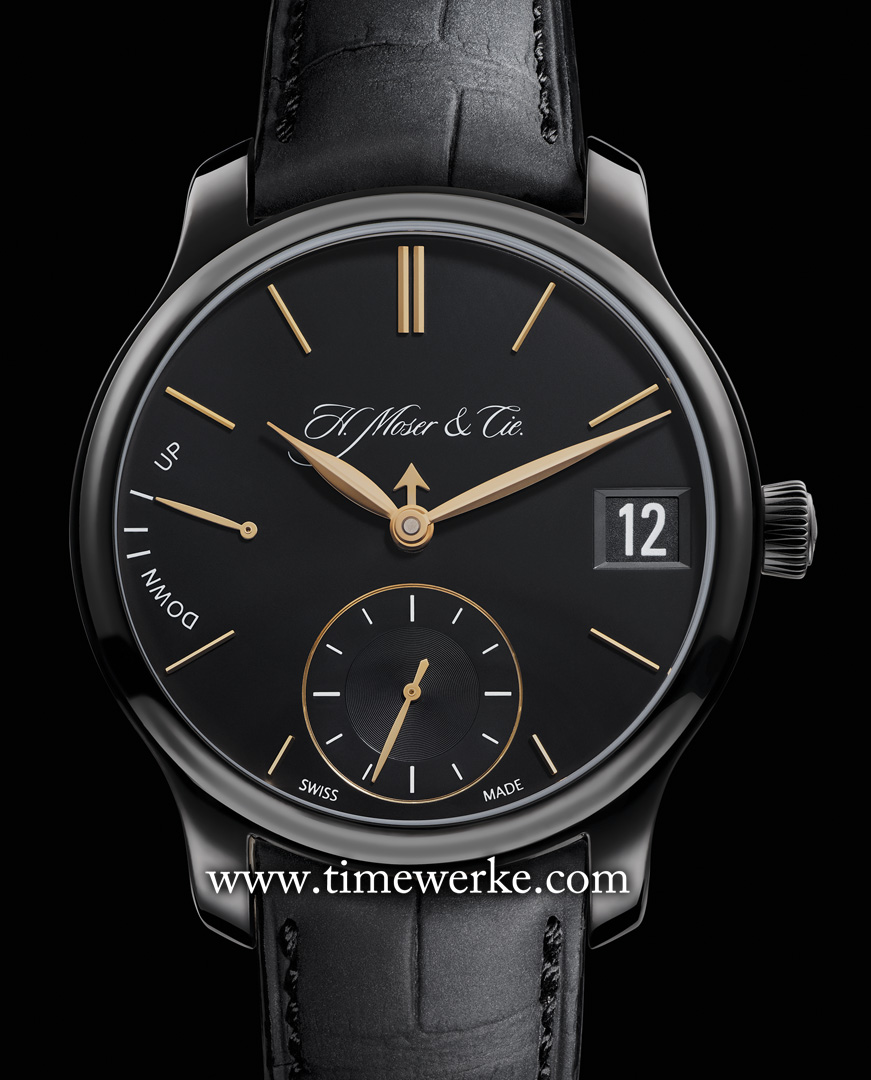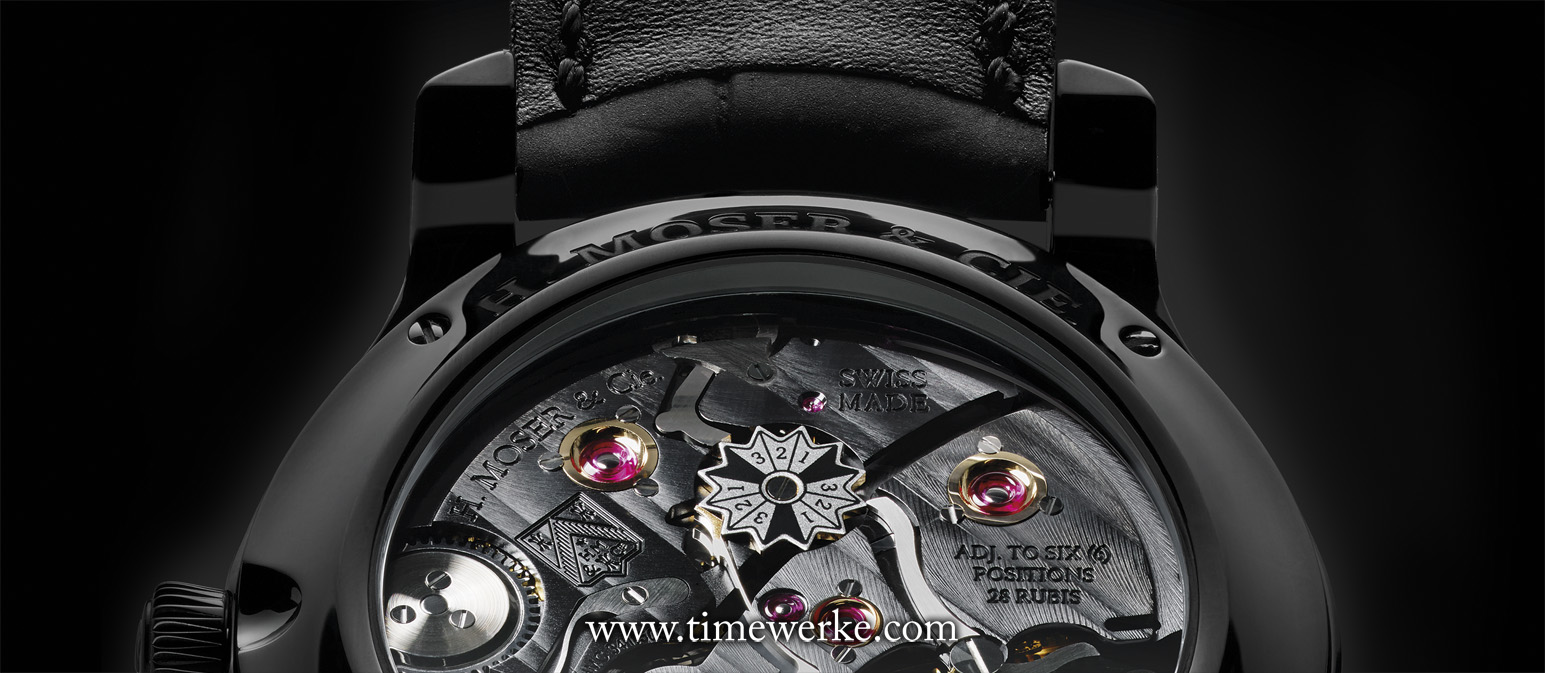
H. Moser & Cie Perpetual Calendar Black Edition (2014). The 40.8mm diameter case is in titanium and is black DLC-treated (Diamond-Like Carbon). It has the power reserve of seven days and its pallet fork and escapement wheel are made from gold. Photo: © H. Moser & Cie
For the uninitiated, it would be a little difficult to fathom how the H. Moser & Cie timepiece shown above is a perpetual calendar watch.
It is elegant in design and simple and clean in looks but it features a complicated mechanical movement; one that incorporates the perpetual calendar complication.
Calendar watches will have the date display and other indications may include the day of the week, month and year. To be classified as a perpetual calendar watch, the date calendar must be able to take into account not just the days during different months but the leap year. In other words, it should incorporate the mechanism to adjust for leap years.
In the H. Moser & Cie Perpetual Calendar, it has what it terms the “Flash Date Calendar” for its in-house Calibre HMC 341 manual-winding movement. This means that the big date display, shown at the three o’clock position, will have the date jumping precisely to the next correct one at the end of each month.
For example, during non-leap years, the date will switch from “28” (February) to “1” (March) without displaying the intermediate dates (29, 30 and 31).
The month display is indicated by the short central arrow hand with the 12 hour indexes used to represent the months. In the image above, what is displayed is therefore 12 December.
The subsidiary dial at six o’clock is for the continuous sweep seconds while the power reserve display is at nine o’clock. The Moser Perpetual Calendar Calibre HMV 341 has seven days of power reserve once fully wound.
The leap year indicator is on the rear of the movement and can be seen through the transparent display case back.
Though it was founded in 1828, H. Moser & Cie is a brand that resurfaced in 2005. The Moser perpetual calendar made its debut that same year and a year later in 2006, the Moser Perpetual 1, which was designed by independent watchmaker Andreas Strehler for the brand, secured the “Complicated Watch Prize” at the Grand Prix d’Horlogerie.

The leap year indicator is at the rear of the Moser in-house Calibre 341 manual-winding movement. Photo: © H. Moser & Cie
Reworked and fine-tuned, the Moser Perpetual Calendar powered by the Calibre 341 in-house movement is “the perfect watch for everyday use,” highlights Edouard Meylan, chief executive officer, H. Moser & Cie.
The settings on Moser’s Perpetual Calendar Calibre 341 can be adjusted forwards and backwards. The clean look of Moser’s perpetual calendar is still being “perpetuated” and we especially like it for its elegant design, technical innovation and clean look.


